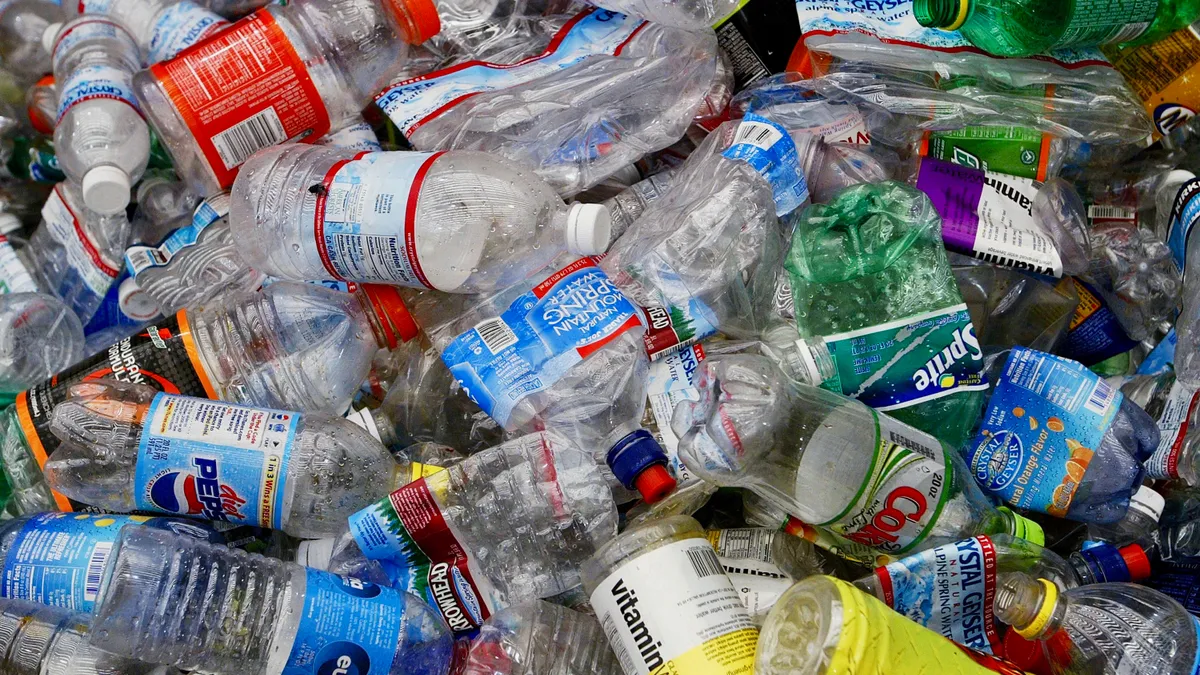A group of 48 federal lawmakers is once again urging the U.S. EPA to reject chemical recycling as a plastics management solution and focus more on reduction and reuse strategies.
In a Feb. 9 letter sent to EPA Administrator Michael Regan, the lawmakers, led by Sens. Cory Booker, D-N.J.; Jeff Merkley, D-Ore.; and Rep. Jared Huffman, D-Calif., urge the EPA to refine its focus on the plastic pollution fight by further regulating the plastics industry.
“We need bold action to protect our communities and our climate from plastics, and we must do this by looking upstream to the plastic production stage,” the lawmakers said. “While recycling is important, recycling alone will not get us out of this crisis, especially with misguided solutions like chemical recycling.”
The group criticized chemical recycling, saying it won’t reduce the amount of plastic in the environment and could cause further harm by putting more resources into plastics production. They also said chemical recycling facilities could disproportionately impact disadvantaged communities that live near them.
The plastics industry has long touted chemical recycling, which it calls advanced recycling, as a way to reduce litter and manage plastics that are not currently recyclable through mechanical means.
The letter calls on the EPA to work on provisions first outlined in the Protecting Communities from Plastics Act, introduced in Congress late last year. That bill, led by Booker and Huffman, did not move forward last session and has not been reintroduced this year. It called for tighter plastics manufacturing industry regulations, including a temporary permitting pause for some facilities, and it emphasized creating incentives for more reuse and refill programs.
Plastics industry representatives, including the American Chemistry Council and the Plastics Industry Association, called the bill “misguided” and said it would hurt jobs and interrupt technology advancements.
Republican control of the House of Representatives could be a hurdle for Democratic lawmakers aiming to pass bills like the Protecting Communities from Plastics Act. The lawmakers stopped short of announcing the bill’s return, saying that “many of the provisions of this bill can be implemented by EPA now, without further Congressional action.” They asked for the agency to create source-reduction targets for single-use plastic and create grants for reuse/refill systems.
The group also called for the EPA to update its regulations to require financial assurance requirements for new or expanded plastics facilities and to use its rulemaking authority to do a wide-ranging review of “the entire petrochemical industry, from their facilities to specific chemicals used, to understand how these chemicals, alone or mixed, impact human health.”
The lawmakers also doubled down on a call for the EPA to continue to regulate gasification and pyrolysis units as waste combustion under the Clean Air Act, another focal point in the fight over what role chemical recycling should play in the circular economy. The EPA in 2021 opened a formal rulemaking process to determine how to regulate the units after fielding a significant number of questions about how they operate, “especially with respect to plastics recycling,” the agency said at the time. The rulemaking process is ongoing.
In July, numerous lawmakers, including Booker, sent a letter to the EPA urging the agency to continue regulating the technologies as waste combustion. That letter also called for the EPA to remove chemical recycling from the National Recycling Strategy, which lawmakers asked for again in the February letter.















